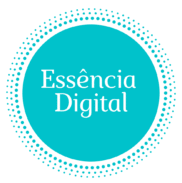Every freelancer has a story about “that client.” The one whose name in your inbox makes your stomach drop. They might be a micromanager, chronically indecisive, a scope-creeper, or someone who is simply never satisfied. These situations are more than just challenging; they are defining moments in your freelance career.
Your impulsive reaction might be to get defensive, frustrated, or simply disengage. But these moments are where true professionals are forged. They are advanced-level tests of your composure, problem-solving skills, and reputation.
This is where Emotional Intelligence (EQ) transforms from a business buzzword into your most valuable playbook. Instead of reacting to the chaos, high-EQ freelancers pause, diagnose the situation, and respond with deliberate, strategic intention. Here’s how you can do the same and turn difficult situations into opportunities for growth.
1. Become a Detective, Not a Defender
When a client’s behavior feels like an attack—they’re overly critical, demanding, or vague—our natural instinct is to defend our work and ourselves. The emotionally intelligent approach is to switch from defense to curiosity. Often, the client’s behavior has very little to do with you.
Their actions are typically symptoms of an underlying problem on their end. A high-EQ freelancer pauses and asks detective questions:
- Is my client under pressure from their own boss or stakeholders?
- Are they feeling uncertain about the project’s direction and afraid of making a costly mistake?
- Is there a fundamental misunderstanding of the process or what was promised?
By investigating the root cause, you depersonalize the conflict. You shift your mindset from “This is an attack on my ability” to “This is a problem we need to solve together.”
2. The Power of Reflective Listening
In a tense conversation, the most powerful tool isn’t what you say—it’s how you listen. Active, or reflective, listening means giving your full attention, setting aside your own agenda, and confirming you’ve understood before you respond. It’s a technique that immediately de-escalates tension because it makes the other person feel heard and validated.
Instead of this:
Client: “This is all wrong! It’s not what I wanted at all.”
Freelancer: “But it’s exactly what was in the brief you signed off on.”
Try this (Reflective Listening):
Client: “This is all wrong! It’s not what I wanted at all.”
Freelancer: “I hear your frustration, and it’s clear this version didn’t meet your expectations. To make sure I get it right, could you walk me through the specific parts that feel off and tell me more about the vision you were hoping for?”
This response avoids blame and opens the door for constructive, specific feedback.
3. Master the Pause: Regulate Your Emotional Response
It’s completely normal to feel a surge of frustration, anger, or disappointment when faced with unfair criticism. Emotional self-regulation isn’t about suppressing these feelings; it’s about not letting them dictate your actions. The space between feeling an emotion and acting on it is your moment of power.
High-EQ freelancers master “the pause.”
- They never respond to a difficult email immediately. They draft a reply if needed, but then save it and walk away for at least 30 minutes.
- They use neutral, collaborative language, even when they feel attacked.
- They recognize when a conversation is escalating and consciously steer it back to a calm, problem-solving track.
Example: Instead of saying, “Your feedback is confusing and contradicts what you said before,” you can pause and rephrase: “Thank you for this. To ensure I’m perfectly aligned, could you help me clarify the main priority for this next revision?”
4. Boundaries as a Sign of Professional Respect
Many freelancers fear that setting boundaries will make them seem difficult or uncooperative. The opposite is true. Clear boundaries are a sign of a confident professional who respects their own time and the client’s investment. They are the framework that allows you to deliver your best work.
How to set boundaries with EQ:
- Be Proactive, Not Reactive: Define your boundaries from the very beginning in your proposal or contract. Include your business hours, typical response times, and the number of revisions included in the project fee.
- Use “We” and “To Ensure” Language: Frame boundaries collaboratively. For example, when a client asks for a rush job on a Friday afternoon, say: “To ensure we produce the highest quality work, my process for a revision of this size requires a 48-hour turnaround. I can have this back to you by Tuesday afternoon. Will that work?”
5. Use Empathy to Build an Alliance
Empathy is your secret weapon for disarming a difficult client. It does not mean you agree with their position or take the blame. It simply means you acknowledge and validate their feelings. When people feel understood, their defensiveness often melts away.
Powerful empathetic phrases include:
- “I understand you’re on a tight deadline and feeling the pressure to get this right.”
- “It sounds like this has been a frustrating process for you, and I want to help make it smoother.”
- “I can see why you’d be concerned about that. Let’s walk through it together.”
Empathy shows that you are on their side, turning an adversarial dynamic into a partnership.
6. Know When to Walk Away—Gracefully
Sometimes, despite your best efforts, a client relationship is unsalvageable. If a client is consistently disrespectful, unethical, or abusive, the most emotionally intelligent move is to end the engagement. Protecting your mental health and professional integrity is paramount.
A high-EQ exit is firm, professional, and drama-free.
- Fulfill your immediate contractual obligations.
- Draft a clear and concise email.
- State your decision without excessive emotion or blame.
Example script: “Hi [Client Name], Thank you for the opportunity to work on this project. After careful consideration, I’ve concluded that our working styles may not be the best fit to achieve your goals. Therefore, I am terminating our contract, effective [Date]. All completed work up to this point is attached. I wish you the best in finding a partner better suited to your needs.”
Conclusion
Difficult clients are an unavoidable part of the freelance journey. You cannot control their behavior, but you have absolute control over your response. By approaching these challenges with emotional intelligence, you do more than just survive them—you use them to build a reputation as a calm, capable, and highly professional problem-solver.
The goal isn’t to create a career free of challenges. It’s to become so skilled at handling them that they no longer disrupt your peace of mind or derail your business. That is the true power of emotional intelligence.
“This is where developing your emotional intelligence becomes a real game-changer.”

